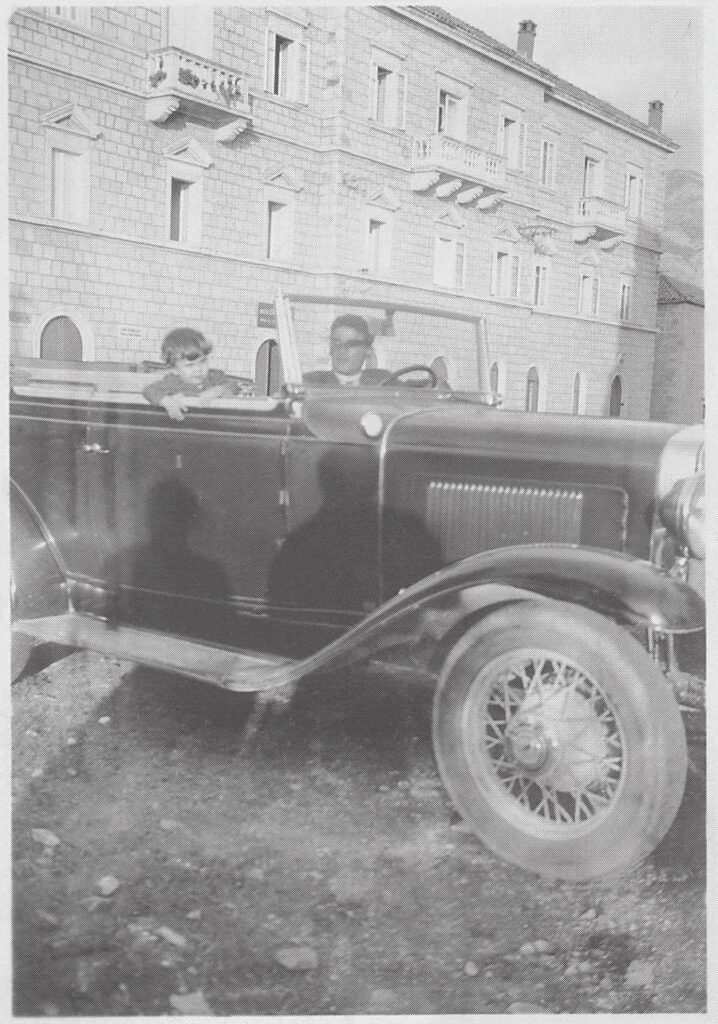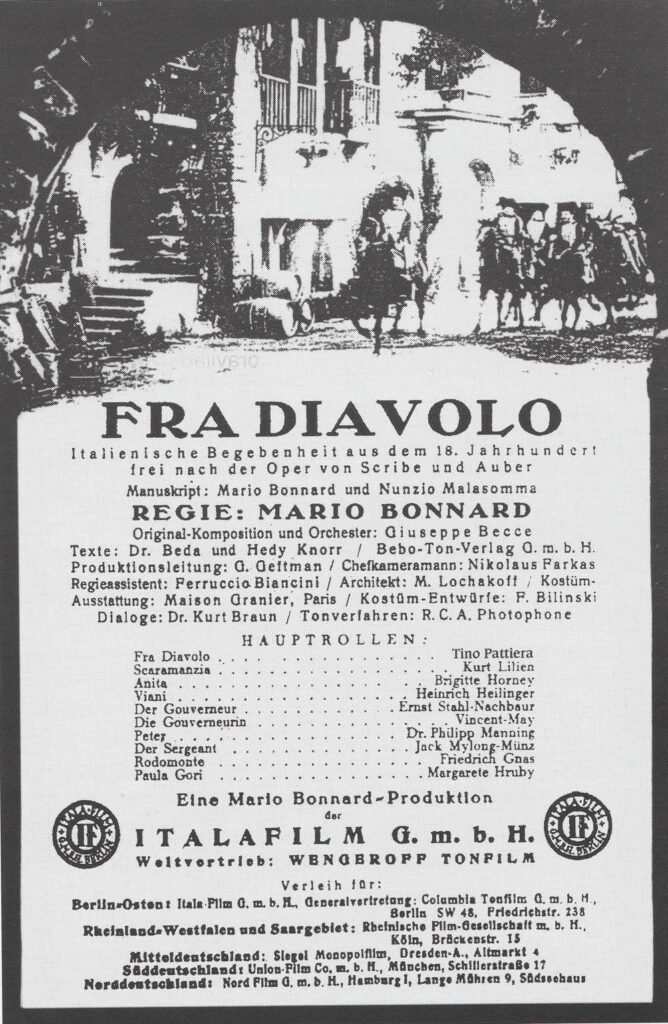This piece of news has arrived from Berlin: On 17th March, the `Fra Diavolo‘ premiere took place on the biggest cinema stage in Berlin. The world had rushed to the show, eagerly waiting to see and hear its favourite, Tino Pattiera. All of Germany is proud of him, for he sang with a voice full of warmth and passion, he sang sweetly and wonderfully. The thunderous applause after each song and at the end of the performance was proof of the local audience’s enthusiasm. Performances by singers of such caliber are truly a real artistic pleasure. And his acting was perfect, especially his smile. He cut a fine figure in his princely costume while dancing minuet with the ladies at the royal court. We look forward to the success of our native. This is how the local newspaper proudly reported all the successes of the Cavtat-born singer Tino Pattiera.
They even published trivial news such as those concerning the advertisements in which he appeared. For example, the Leipzig-based Elida perfumery used the following slogan to promote its shampoo: `Mr Tino Pattiera washes his hair with this shampoo!’ The concluding statement of the article in question expressed the notion that, despite the fact that advertisements are `truly a trivial thing; however, at least this instance holds value based on the fact that it spreads the good name of our beloved local artist and our city around the world’.
Indeed, Cavtat was truly proud of its citizen, a world-renowned opera singer, born on 27th June 1890.
Although Tino’s first choice, wholeheartedly supported by his parents, was to study medicine, which he studied in Prague, he very quickly replaced anatomy lessons with singing, his true calling. He returned to Zagreb and began working at the Croatian National Theatre. He would return to Prague as an established opera singer after studying singing at the Vienna Akademie für Musik und darstellende Kunst. During his time in Vienna, he also took private lessons with various teachers. In 1922, the local newspaper once again republished an article from the Zagreb-based newspaper Slobodna Tribuna. The article in question stated that `Mr Tino Pattiera has been recently featured as a guest in Prague’s “Narodni Divadl” … The music critic from the Narodni Listy newspaper wrote very highly about Mr Pattiera’s performance and had this to say: `Mr Pattiera is distinguished by excellent dramatic expressiveness. He is one of those lucky artists whose combination of raw vocal prowess and refined skill provides such range of expression that it allows their acting to be limited to merely moderate complements and the uttering of lines‘. As for his voice, he says `that it overpowers and intoxicates‘.
Tino Pattiera’s voice was extremely popular throughout Europe, and the Dresden Opera House was where he performed the most until the beginning of the Second World War. In 1921, when he set out to conquer America and sang at the Chicago Opera, the people of Dresden were worried that they would be left without their favourite singer. The American audience was delighted, but Pattiera nevertheless returned to Dresden where his wife at the time, Countess Hedwig Schaffgotsch, was waiting for him.
A favourite among the audiences and adored by women, Pattiera led a fashionable life worthy of a true celebrity. His visits to Cavtat during his summer vacations would stir excitement among the local community. He is remembered as a very generous person – he had another floor added to his parents’ house and connected it to a neighbouring house in order to be able to accommodate up to thirty people, which would allow him to invite friends. Other people’s satisfaction made him happy.
Much changed after the Second World War. Pattiera left Dresden and bereft of almost all his possessions. He briefly stayed in Prague and then moved to Vienna. Interestingly enough, aside from being a superb tenor, Tino Pattiera was also a passionate football fan. His favourite football team since his student days was the Viennese Rapid. In his younger days, he could be seen cheering on his team from the stands, but towards the end of his life he stopped attending matches and instead watched football on TV.

From: Tino Pattiera. Družba ‘Braća hrvatskog zmaja’. Dubrovnik, 2004.
Gravely ill, he passed away in Cavtat on 24th April 1966, after a turbulent life filled with mass euphoria stirred by his concerts, countless female fans and the artistic elite of which he was a part.
The vibration of his voice was so fast, seven to eight vibrations per second – Caruso had been the only other known example of a singer whose voice could do the same. He was a legend of our youth, the absolute master of the scene…


